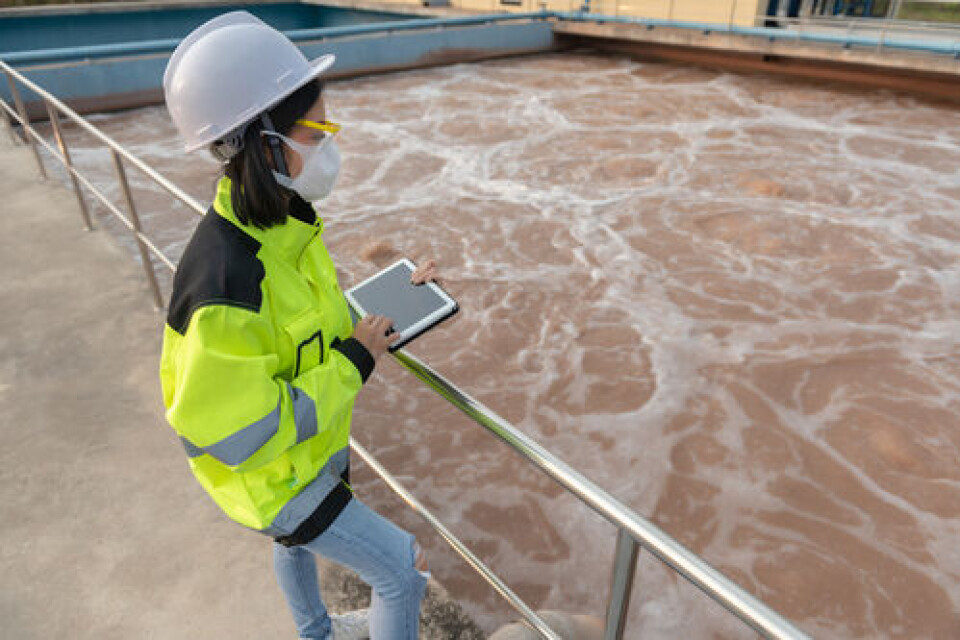-
Forest fires in France begin amid heatwave: 400 hectares burned due to BBQ on trailer
Official daily ‘forest-fire risk’ map is being published again for summer
-
French weekly weather forecast June 30 - July 4: heatwave to continue then storms
84 departments are on heightened alert for the start of the week
-
Map: the 151 areas of France chosen to get more doctors from September
Areas include parts of Lot-et-Garonne, Dordogne, Creuse, Allier and Nièvre
France allows local authorities to use wastewater after record drought
The use of wastewater for civic tasks such as street cleaning or vehicle washing will save precious drinking water

France has given the green light for local authorities to use treated wastewater as the country battles the impacts of a record winter drought.
Ecology Minister Christophe Béchu made the announcement during a visit to Cannes in southern France.
It is hoped using treated wastewater for street cleaning, vehicle washing and watering vegetation will save precious drinking water.
It comes after France recorded its longest winter drought last month: 32 consecutive days without rain.
🔴 Le ministre @ChristopheBechu annonce sur @francebleuazur et @F3cotedazur une première mesure de son plan #eau : l'eau usée pourra être réutilisée comme @VilledeNice et @villecannes le demandaient @cestrosi @davidlisnard pic.twitter.com/4ej8uVOECo
— ici Azur (@iciazur) March 14, 2023
A report last week said as a result 80% of France’s groundwater was at “moderately or very low” levels
Earlier this month, the Alpes-Maritimes prefecture placed the department - which includes the southern city of Nice - on drought alert, one week before the official start of spring.
Authorities in the department said the rain deficit is at 43%, the lowest level since measures began in 1959. The department was also the first to introduce water restrictions in March last year. These were extended to December 15, 2022.
See also: How bad is the drought in France? See restrictions in your department
The mayors of Nice and Cannes, Christian Estrosi and David Lisnard, had asked Paris to lift the restrictions on using treated wastewater last September after a particularly dry summer.
“There can be no future and attractiveness for an area if we do not guarantee greenery on the one hand, and the protection of our water resources and our coastlines on the other,” said Estrosi, welcoming the government’s move.
In Antibes, around 9 million m³ of treated wastewater is currently pumped into the sea. Authorities want this to be instead used for watering parks, gardens and flower beds. In total, more than 70,000 m³ of treated wastewater could be used for tasks such as these.
Similarly, wastewater will also be used to clean public buses. At a new depot for the bus network Envibus, 95% of the water used to clean buses will be recycled. This means that the company will use no more than 3,500m3 of new water each year.
Renaud Muselier, president of Provence-Alpes-Côte d'Azur, announced this month the launch of a regional experiment for the use of wastewater in agriculture and for industrial cooling.
The project will be evaluated this year, with more investment set for next year if it is deemed a success. The university of Aix-Marseille is also working on the project, to research more ways to treat and use the water.
Mr Muselier is even set to visit Israel, as it is a leader in wastewater reuse. He will observe its systems and consider what France could learn.
Read also
Warm weather, drought and fires: why it may feel like summer in France
Drought in France: 2023 set to be ‘very dry year’ and it starts now
Why the month of March will be decisive for droughts in France
























